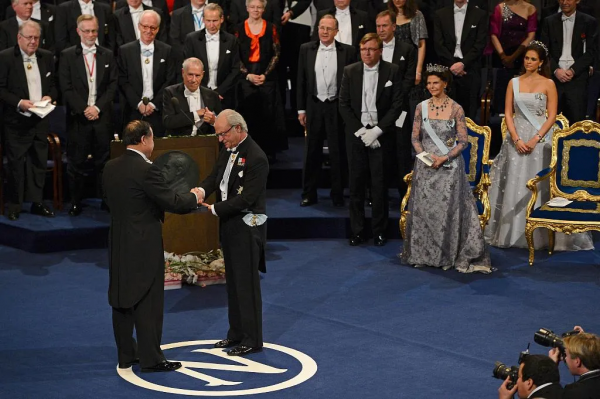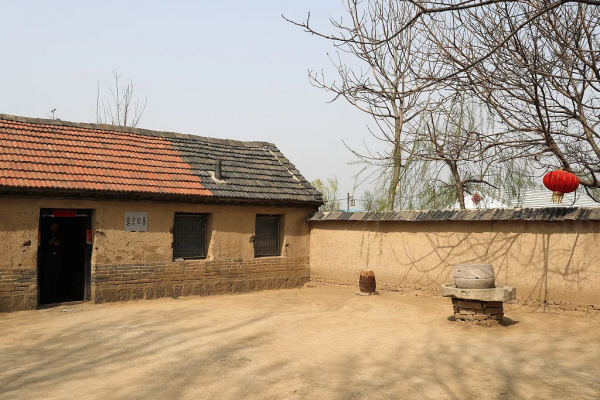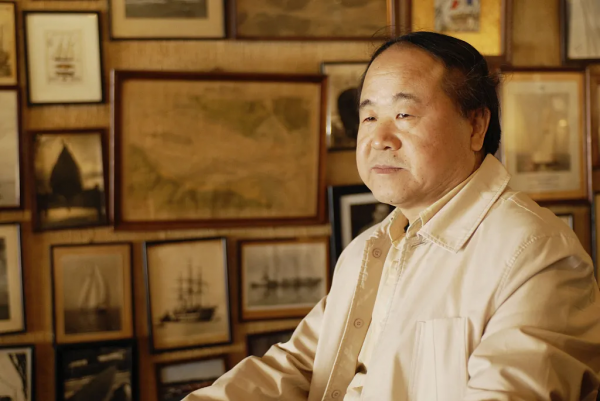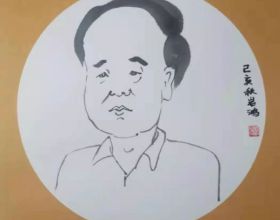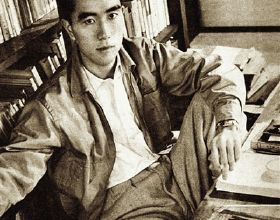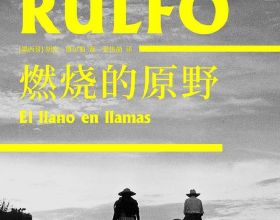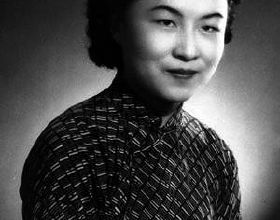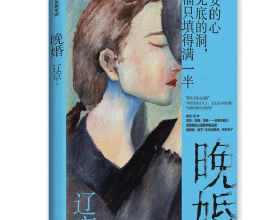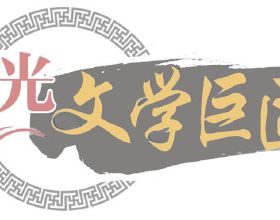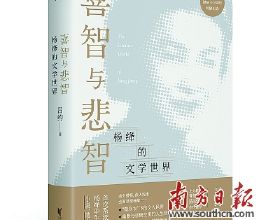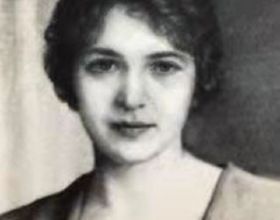莫言,中國當代知名作家,來自山東省高密縣東北鄉。他以其故鄉為原型,構築起了一個文學王國和精神世界。
1988年,根據莫言同名小說改編而成的電影《紅高粱》斬獲柏林電影節金熊獎,這讓原本寂寂無聞的他,一時之間聲名大噪、家喻戶曉。
2012年,莫言成為首位中國籍諾貝爾文學獎獲得者。
當地時間2012年12月10日,瑞典斯德哥爾摩,中國作家莫言領取諾貝爾文學獎。(圖片來源:視覺中國)
在瑞典斯德哥爾摩音樂廳裡,在全場掌聲之中,莫言緩步上前,從瑞典國王卡爾十六世·古斯塔夫手上接過諾貝爾文學獎獲獎證書和金質獎章,領取了那一年度的至高文學榮譽。
Nine years after receiving the Nobel Prize in Literature, Mo Yan, 66, shows no sign of letting up in his pursuit of crafting great stories, remaining a passionate storyteller as energetic as he was three decades ago.
As one of China's most accomplished contemporary writers, Mo Yan has generated tons of novels that are widely published and have won him multiple honors and awards both at home and abroad.
But he achieved celebrity status largely thanks to the stunning success of the eponymous film adaption of his romantic novel Red Sorghum, which was first published in 1986. The acclaimed director Zhang Yimou made a visually striking movie out of the writer's cinematic and suspenseful grand narrative. The film was a huge hit at the box office. It also won the Golden Bear at the 1988 Berlin International Film Festival.
Since the late 1980s, Mo Yan has deviated from mainstream Chinese literature and created a style to call his own. The Nobel Committee for Literature praised him as the one "who with hallucinatory realism merges folk tales, history and the contemporary."
Although Mo Yan acknowledges that Garcia Marquez's magic realism style inspired his writing in some way, he insists that he is trudging on a path independent from Marquez.
成為一名作家,尤其是被多數人所認可的作家,往往需要經過時間的沉澱。莫言所創作的小說的主題與敘事風格,其實與他兒時的經歷密不可分。
2018年4月2日,山東濰坊,在高密市東北鄉平安莊,莫言舊居內景。(圖片來源:視覺中國)
1955年2月17日,莫言出生于山東高密縣一個普通農戶家庭,原名管謨業。小學五年級因特殊原因輟學後,他當過放牛娃,當過兵,為了能“一天三頓吃上餃子”而走上文學之路。1985年,30歲的莫言因《透明的紅蘿蔔》在中國文壇一舉成名。
此後,他筆耕不輟,陸續出版《紅高粱家族》《天堂蒜薹之歌》《酒國》《豐乳肥臀》《檀香刑》《生死疲勞》《蛙》等一系列長篇小說,著作被翻譯成英文、法文、德文、義大利文、日文等多種語言,在世界文壇引起轟動。
Mo Yan, pseudonym of Guan Moye, was born in 1955 in a small village in east China's Shandong Province. His rural hometown has been the fictionalized setting for most of his stories.
"I am deeply nourished by folk literature," Mo Yan told CGTN, "I dropped out of school at the fifth grade. After that, I worked with my uncles to do farm work for many years. While my peers were reading with their eyes, I was reading with my ears. I listened to the stories of gods and ghosts, historical legends, and anecdotes told by adults."
And his works have drawn on traditional Chinese folk tales.
莫言筆下的“高密東北鄉”是鄉土的、原始的、野性的。但正是這樣一片土地,孕育出一個又一個個性鮮活、迸發著頑強生命力的、充滿抗爭精神的中國女性。
The dimensions Mo Yan gives to his female protagonist are hard to ignore. The male writer who once admitted he was a feminist during a magazine interview, has created numerous headstrong and rebellious female characters, such as Shangguan Lu in his epic novel Big Breasts & Wide Hips and Dai Fenglian in Red Sorghum Family. Big Breasts & Wide Hips, a story about a mom and her eight daughters, is considered a tribute to the strong females in China.
Mo Yan laments the miserable destiny of Chinese women in the feudal society, and the female characters in his works stand up against oppression and fight for a way out of despair.
"They rebelled against the feudal system physically. Their body was the only thing they had power over," he said.
Mo Yan is a keen worshipper of maternal love, so much so that he believes motherhood defines part of a woman's identity. He recounted an encounter with a mother of twins, and the stark contrast between the mom's weary look and her twins' rosy cheeks moved him deeply. "The sun was setting, and the afterglow beamed down on them. I felt as if I was looking at a sacred picture."
2009年底,莫言出版了截至目前最新的一部長篇小說《蛙》。這部於2011年8月獲得第八屆茅盾文學獎的作品,是莫言在文學創作中的一次具有開創意義的藝術嘗試,也是他對生命、人性、時代等議題的又一次深刻剖析和反思。
With a mix of realism and surrealism, Mo Yan's stories are meant to take a harsh look at the dark side of life, with an unflinching dissection of humanity. He told CGTN that he was "writing as if he himself is the sinner" when working on his most recent novel Frog, first published in 2009. "A writer must turn his vision and eyes inward and look at his own heart," he said.
諾貝爾文學獎評委會前主席艾斯普馬克曾這樣評價莫言:“我相信莫言得獎後依然會寫出偉大的作品,他真的有一種力量,沒有人會阻止他。”
2006年,法國,中國作家莫言。(圖片來源:視覺中國)
事實上,對於堅持寫作這件事,莫言從來沒有猶豫過。他一直在自己的思想世界裡,不慌不忙地醞釀著新的故事。
Kjell Espmark, former chairman of the Nobel Committee for Literature, once said that he believed in Mo Yan's capability in continuously writing great stories even after winning the Nobel Prize.
Mo Yan surely never let people down when it comes to his writing. His latest book A Late Bloomer, a collection of 12 novellas, has won critical acclaim, and people are expecting more from him. During the interview, Mo revealed that his next novel takes on quite a grand theme, and he is still polishing it, without disclosing any further details.
Mo Yan said he will keep writing as long as he can. "Only when I am writing, can I feel the worth and meaning of my life," he said.

